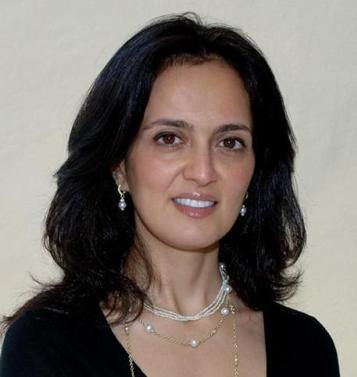Mojdeh Khagan Danial, Miami's Leo Martin March of the Living Strategic Plan Chair & Comedy for a Cause Honoree
Posted on 09/04/2020 @ 08:00 AM
Tell us briefly about your Jewish background and education.
I was born and raised in Tehran, Iran, during the Shah’s reign. We observed Judaism at home and went to the synagogue on the High Holy Days. I had absolutely no formal Jewish education in Iran, and of course, never advertised my Jewish faith. My parents enrolled me, the oldest daughter, and my sister in an American school which had instruction in English 2/3 of the day and instruction in Farsi the other 1/3. Ironically, I was always a top performing student, and even in Quran [the Muslim sacred scriptures] studies from which I wouldn’t seek religious exemption.
In February 1979, the Iranian Revolution began. My baby brother was a month old and because of the turmoil, it became difficult for us, especially with a newborn. My father put all four of us (my mother and three children) on a plane to the United States for what we thought was going to be a temporary visit. Except it wasn’t temporary. Right after we left, the airport shut down and then the hostage crisis began. My father got trapped there— straight from the movie Argo. Sadly, he was stuck in Iran for three years until finally, we were all reunited in New York.
During that time, we stayed with my father’s family who lived in Queens. They were very supportive. I went to P.S. 99 in Kew Gardens, then to a private school in Forest Hills, and then we moved to Long Island where I continued in public school from 10th -12th grade. We all went through a lot of trauma, but it taught me that as an immigrant and especially as a woman, I needed to be able to stand on my own two feet. I experienced first-hand how important it is to feel connected, to be responsible for and to help others.
Why did you decide to become involved in the Miami Jewish community and with Federation?
I became active in USY in high school and then at Columbia College and Law School, I got involved in Jewish life. In the United States, I truly had my personal Jewish renaissance; it became important to make an effort to preserve Judaism. Jewish leadership and activism are extremely meaningful to me— the best way I know to ensure the continuity of Jewish values to my children and in our community.
What about Jewish education motivated you to take this position of leadership on the CAJE Board?
After we were married, Robert and I decided it was important that our children should go to Jewish school. They were enrolled at the RASG Hebrew Academy where they received a meaningful and engaging Jewish education. Though I, myself, was more traditional than Orthodox in my upbringing, I wanted them to receive a fundamentally strong Jewish as well as secular education. This is a gift we were able to provide to our children and that has influenced our entire family. I was able to deliver to them the opportunity that I had never had.
What do you hope to achieve or what do you hope CAJE will achieve in your time as a board member?
My hope is to strengthen Jewish education and make it more accessible to a larger number of Jewish students of all ages. Through the Wexner Heritage Program, I learned so much Jewishly, and it has made my life richer. I feel that learning is key to being a better person and having an enriched life. I keep trying to master more Hebrew. I study various aspects of Judaism. Our family discusses Divrei Torah at the Shabbat table-- we especially love the writings of Rabbi Jonathan Sacks.
What was compelling to you about chairing the March of the Living Strategic Plan Committee and what did you learn (your takeaways)?
I believe that Holocaust education is key to engendering tolerance and fighting antisemitism. The March of the Living is an intense personal and communal growth opportunity. After many years of resisting going to Poland because I knew how gut-wrenching it would be, I finally went in the second year of being campaign chair for Women’s Philanthropy. It was such a difficult experience for me. As a sensitive person, I think I went numb while I was there, so I wouldn’t internalize all the pain. When we landed in Israel afterwards, I felt like I could finally breathe again!
My sons were very moved by the March experience and wrote about it in their college applications. It was also very powerful for them to meet other Jewish teens from outside the Hebrew Academy, from parts of Miami with which they were less familiar. They are still in touch with many of the friends they made on the March, which is such a wonderful, unexpected outcome.
What is something you would like our readers to know about Jewish Education and/or the March of the Living?
Jewish education and the March are opportunities that enrich future generations that we must continue to support!





